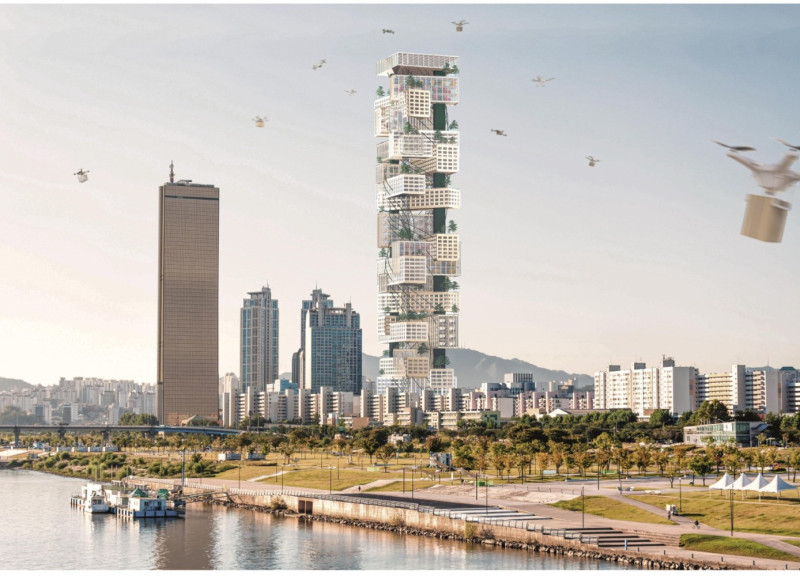5 key facts about this project
The building's primary function is to provide a space that encourages recycling while serving as a community hub. By incorporating different levels for various activities, the project fosters collaboration among businesses, researchers, and community members. This multifunctionality is a key aspect of the design, allowing the facility to adapt to the needs of its users.
Unique Design Approaches
The "Up-Cycling Tree" distinguishes itself through its vertical design strategy. By maximizing vertical space, the project efficiently accommodates multiple functions in a limited footprint often found in urban settings. This vertical integration promotes accessibility and interaction between the various components of the building.
Materiality is another significant element of this project. The design utilizes recycled concrete as a primary structural material, which supports the project's sustainability goals. Additionally, large glass elements are integrated throughout the façade to enhance natural light and create a connection to the environment. Steel is employed for structural stability, while sustainable wood finishes add warmth to the interiors.
Green walls incorporated into the design not only contribute to the aesthetics but also improve air quality and thermal performance. This biophilic approach links the building to its natural surroundings, reinforcing the project’s environmental ethos.
Innovative features such as educational labs and flexible workspaces further enhance the project's community focus, inviting public participation in sustainable practices. The design also considers potential technological advancements such as automated waste transport, aligning the facility with modern innovations.
Overall, the "Up-Cycling Tree" offers a comprehensive architectural solution that holistically addresses environmental concerns while engaging the community. For further insights into the architectural plans, sections, and designs, interested individuals are encouraged to explore the project presentation in detail. This exploration will provide a deeper understanding of the unique architectural ideas it embodies.























